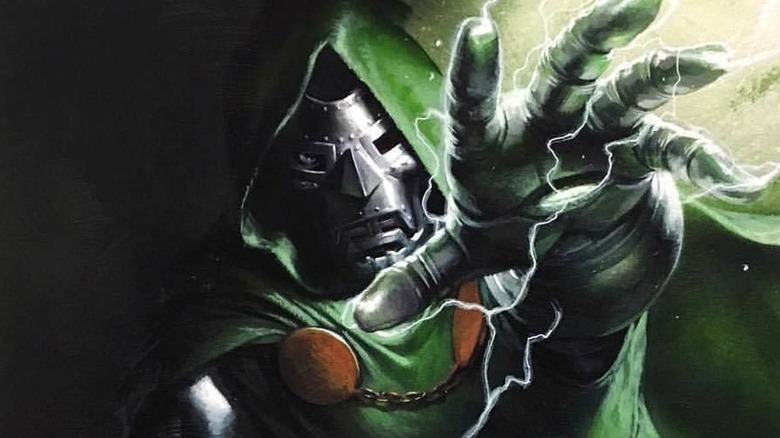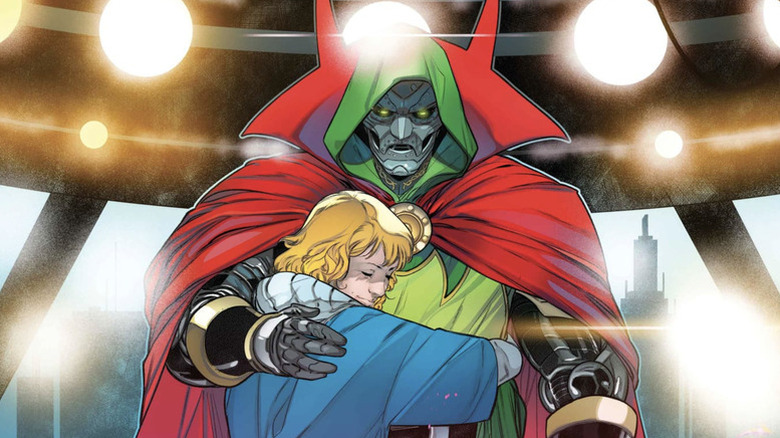Fantastic Four: First Steps Suggests The MCU Will Get One Thing Very Right About Doctor Doom
What is the meaning of this, Richards? This article contains spoilers for "The Fantastic Four: First Steps."
"The Fantastic Four: First Steps" does many things, but apart from introducing the titular super team, its arguably greatest contribution is its mid-credits scene. Here, we see Sue Storm (Vanessa Kirby) briefly leave her son Franklin on the couch as she goes to get a new book for them. When she returns, she's alarmed to find an intruder: An armored man covered in a green, hooded cape and holding a metal mask, kneeling in front of a seemingly unbothered Franklin.
The kneeling man is, of course, our first glimpse of Robert Downey Jr.'s Doctor Doom. The villain is a key character in the Russo brothers' upcoming Avengers movies "Avengers: Doomsday" and "Avengers: Secret Wars," here to make a brief early impression before moving front and center. Fortunately for fans who may have been dreading the MCU's take on the complex character, this impression confirms that the latest live-action Doom may very well be in good hands. By focusing on the character's comics-accurate connection with children, the mid-credits scene deftly convinces the viewer that this Doom is something very different than the relatively one-note destructive forces of the Julian McMahon and Toby Kebbell versions.
Doctor Doom has a surprising soft spot for children
Doctor Doom contains multitudes. He's both a calm, calculating supervillain and a driven, boisterous egomaniac. He rules over an entire country but can be incredibly petty, especially toward his nemesis, Reed Richards (played in "First Steps" by Pedro Pascal). He can be the good guy, the bad guy, or the worst guy, depending on the story and the day ... but more often, he exists above mere classifications (if you ask him, at least).
An easy visual signifier of his complicated nature is his relationship with children. While Doom may be a mortal enemy of the Fantastic Four, he tends to get along very well with the Richards children — Franklin and especially Valeria, whom Doom helped deliver and named. They let his sesquipedalian monologues slide but tend to enjoy his company. Doom's soft spot for children seems to extend to his Latverian subjects, as he demands that the country's children get enough sleep. Once, he even adopted a Latverian orphan, Kristoff, after seeing his mother die — and made the kid his official heir.
The decision to introduce Doctor Doom humbly kneeling down to meet Franklin on the boy's level (or, at least, so it seems) instead of having him face the camera ominously or gloat like a standard villain is an incredibly promising sign for the MCU adaptation of the character. By establishing his ability to connect with children right away, "The Fantastic Four: First Steps" lays the groundwork for the other complexities that make Doom such a compelling figure. Up to now, the canceled "Avengers: Earth's Mightiest Heroes" boasts the best Doctor Doom adaptation — but honestly, this single scene makes me feel that the MCU version has a good chance of leaving all others in the dust.

